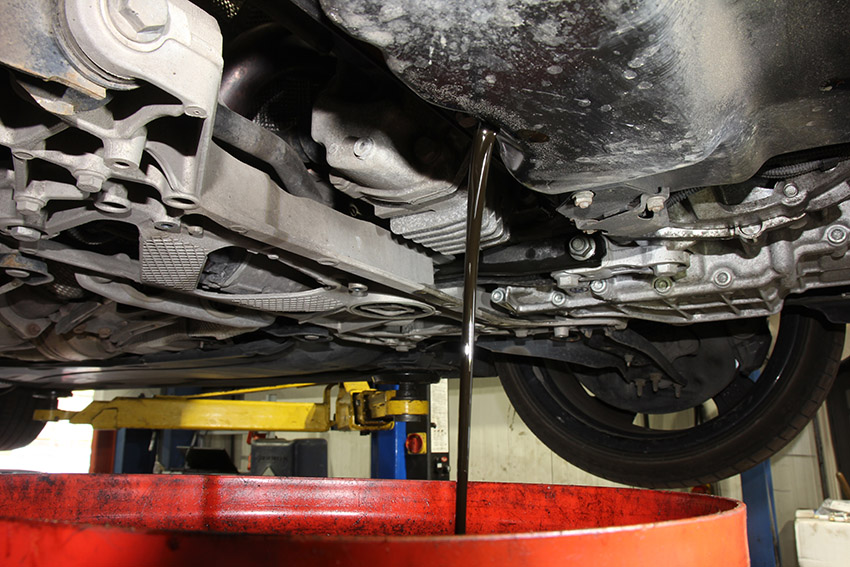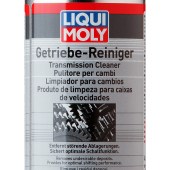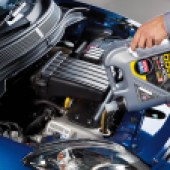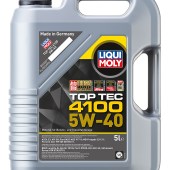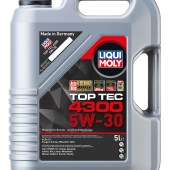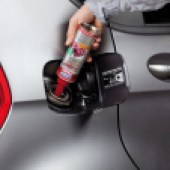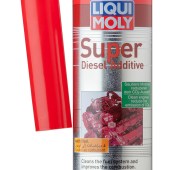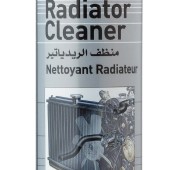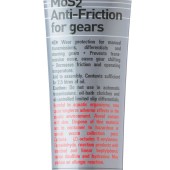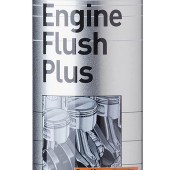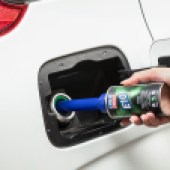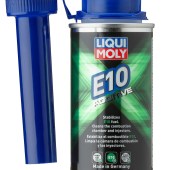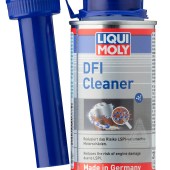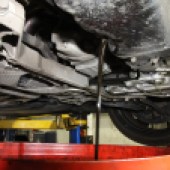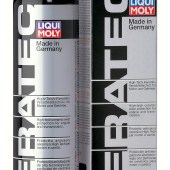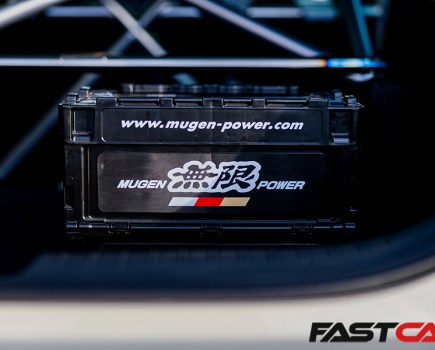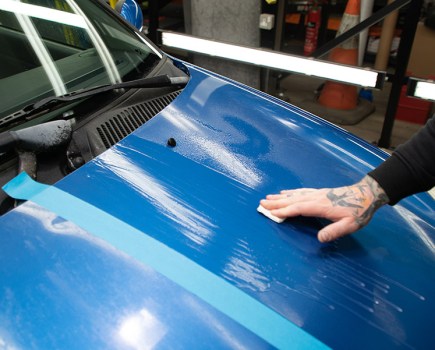Can you really save money by spending it on the right oils, additives and cleaners? We ask the experts at LIQUI MOLY on what products to buy.
The recent increase in fuel prices has left most people feeling that driving a car is expensive. Whilst you can shop around every time you fill up, use your car less and drive more sedately, there are other ways to save even more money. We are talking about the hidden costs of running a car, such as servicing and using the right oils, additives and cleaners. In the long term, this should help reduce the risk of problems that could in turn cost even more money, but is it worth spending so much on good-quality oils, additives and cleaners that may or may not be proven to work? We asked the experts at LIQUI MOLY for the answers…
Using the correct grade oils in your engine
We realise it’s important to use the correct grade of oil in an engine, but surely all 5W-30 is the same, and if so, does using the cheapest make sense?
“First of all, it is not just about the correct oil grade but about the correct specification, which is much more than just the viscosity. In the past, the viscosity was an important point in keeping oils apart. But today the viscosity is just one of many relevant properties of the oil. Buying a 5W-30 oil is like buying a red car. This might be a Mini or a Ferrari. The oil guide at www.liqui-moly.com tells exactly which oils are the right ones for a specific car. Picking a cheap lubricant is false economy. The actual cost of oil per mile is negligible but the negative impact can be great: deposits and sludge, excessive wear and tear, damaged exhaust gas treatment systems, even severe engine damage is possible. Oil is the lifeblood of the engine. High quality oil often offers extended oil change intervals according to the car manufacturer’s specifications, which makes it more economical. And it offers better protection to the engine.”
What’s added to LIQUI MOLY engine oil to make it so special and beneficial to an engine?
“Our oils are officially approved by the car manufacturers. This means that they thoroughly test our oils themselves and only if they pass these tests, do we receive an approval. These approvals are the highest quality seal which an engine oil may get. Such an approval tells you that it is not only the oil producer but also the car manufacturer who stands behind this oil. This also makes sure that there are absolutely no issues with the warranty.”
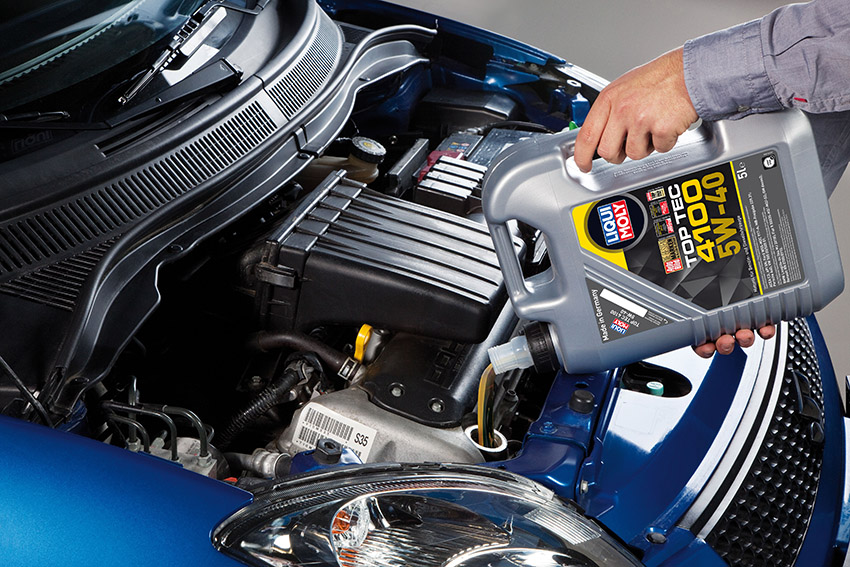
If a good-quality oil is used in the engine, is there any point in using an engine flush before draining it?
“Even though our oils already come with detergents and dispergents to keep the engine clean, these active agents are used up during the oil doing its job in the engine. Our Engine Flush Plus boosts the cleaning performance of the oil in order to get the dirt out of the oil system. It is like cleaning your hands after having worked on your car. Sometimes soap is not good enough and you need to take handwash paste.”
How does Engine Flush Plus work and what does it contain?
“It contains very strong cleaning agents. In fact, they are so strong that they reduce the lubricating performance of the engine oil. This is why you must not drive anymore after you have added it. Just let the engine idle for 10-15 minutes. During this time the cleaning agents dissolve deposits and contaminants. They are drained together with the used oil. The fresh oil enters a clean engine and can deliver its full performance.”
Using oil additives in your engine
What additives would you recommend adding to engine oil?
“Cera Tec is an oil additive that significantly reduces wear and tear and protects the engine, even in the case of an oil loss. It is effective up to 30,000 miles. Less wear and tear means fewer problems with worn-out parts and that means a longer engine lifetime.”
Do you have any evidence to prove Cera Tec actually makes a difference to preserving an engine?
“APL is an institute in Germany which does a lot of engine and component tests for car manufacturers. To find out how well Cera Tec protects from wear and tear, they let two gear wheels work against each other with more and more force until a certain wear level is reached. With Cera Tec in the oil, more than twice the force was needed to achieve the same amount of wear.”
Could a fuel injection additive/cleaner help to reduce the risk of injector failure, and if so, how does it work?
“Yes. A clean injector lasts longer because every contamination increases wear and tear in the injector.”
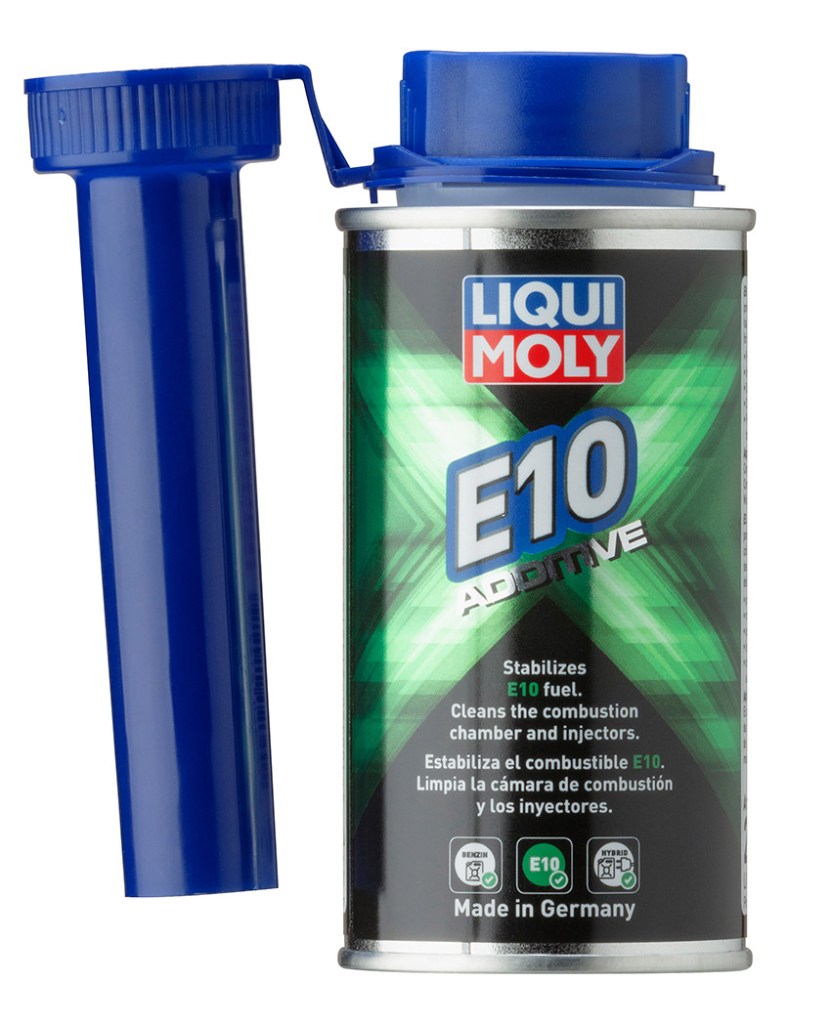
With the recent introduction of E10-rated petrol, is it worth switching to or sticking with E5?
“The designation E10 means the petrol contains up to 10 per cent bioethanol. This is intended to reduce the consumption of fossil fuels. However, E10 also has some technical features. First of all, ethanol has a calorific value that is almost one third lower than petrol. The more ethanol in the fuel, the lower its energy content. This increases fuel consumption. It can also have a negative impact on engine performance. The second point: ethanol is hygroscopic, so it attracts water. This can cause corrosion in the tank and fuel system.”
Using fuel additives on your car
So, should we all switch to the more expensive E5, or do you offer an additive to help combat the problems with E10?
“The E10 additives by LIQUI MOLY improves combustion, thereby ensuring better acceleration, particularly in the partial load range. This compensates for the power loss to some extent. The petrol additive also contains highly effective corrosion protection, so it prevents damage to the tank or fuel system resulting from the higher water content. This makes it a good choice for any motorist who doesn’t want to have to deal with the disadvantages of E10.
However, there is one problem where this additive has its limitations, namely material tolerance. Ethanol can attack seals and hoses on some older vehicles. Unfortunately, this is something that cannot be influenced by an additive.”
Can LIQUI MOLY’s E10 additives be used on an engine with a catalytic converter?
“Yes, of course.”
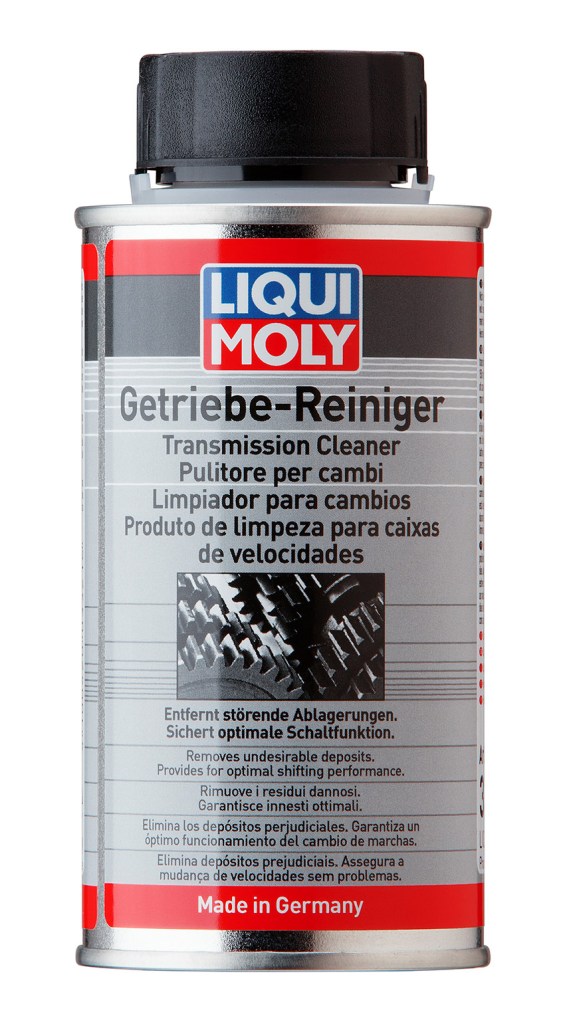
Gearbox cleaners
Is there any point in adding a cleaning solution to a gearbox?
“The gearbox suffers from contamination like the engine does. Less dirt gets in the system but it creates problems, too. Typical results are hard or sticky gear shifts. The LIQUI MOLY Transmission Cleaner removes these deposits. It is added right before changing the gear oil and dissolves the contaminants which are then drained together with the used oil. Then you may add Gear Oil Additive to the fresh gear oil. It provides extra wear protection. This treatment gives great results when an older gearbox starts making problems. Instead of an expensive mechanical repair, these two additives revive the gearbox and the gears change smoothly again.”
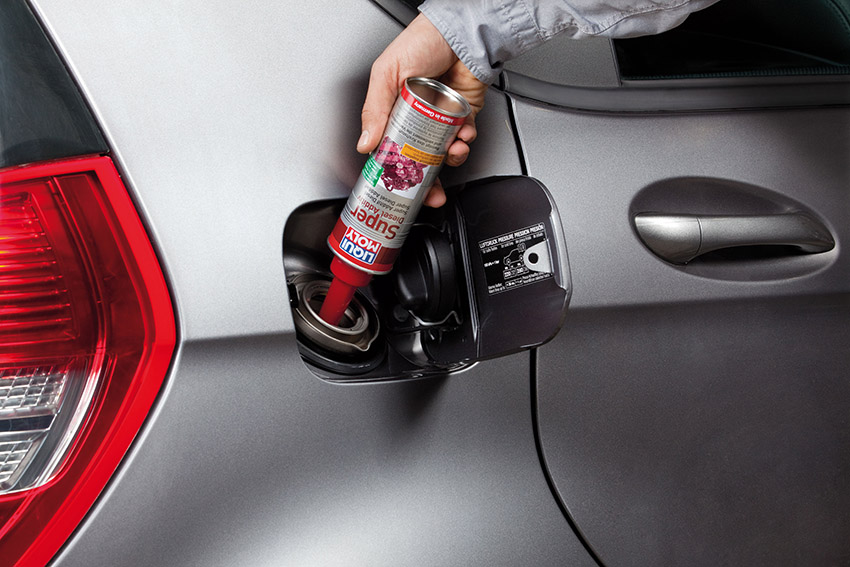
Additives for diesel engines
Is LIQUI MOLY Super Diesel Additive a magic potion, or does it actually make a difference?
“No, it does no magic at all. This is chemistry and addresses the problem that modern engines are far less tolerant towards contamination than older engines. This is the price we have to pay for their efficiency. Contaminants and combustion residues form also at the nozzles of the injectors and have a negative impact on the spray pattern of the diesel. It is not atomised properly anymore. This leads to increased fuel consumption, less power output and even more contaminants. Super Diesel Additive removes these deposits and restores the original efficiency of the engine. In addition, it also improves the cetane number of the diesel and protects the fuel system from corrosion.”
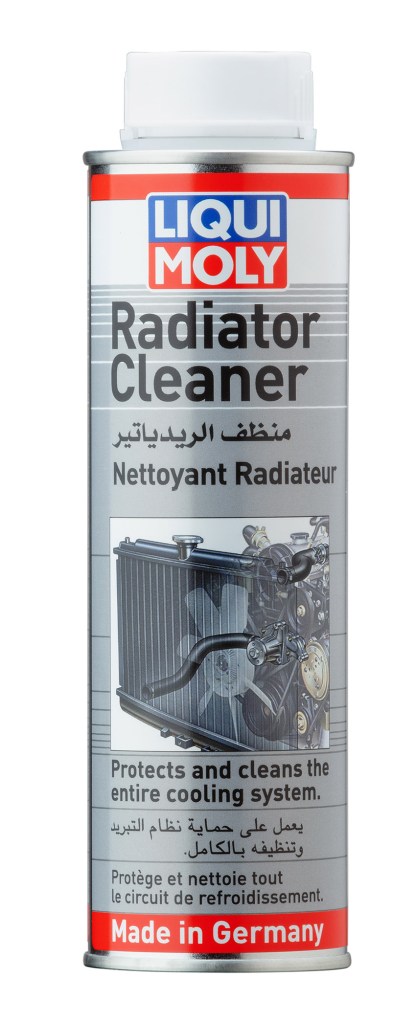
Radiator cleaners
There seems to be more cleaners that can help, such as LIQUI MOLY’s Radiator Cleaner. How does this work?
“In the radiator oily substances and limescale are a common problem. They form deposits which create blockages for heat exchange and also block thermostat valves and control mechanisms. This is why every car owner is well advised to clean the radiator thoroughly when they change the cooling fluids anyway. Radiator Cleaner contains complexants with active cleaning agents. They dissolve the deposits which then are flushed out of the system together with the old cooling fluid.”
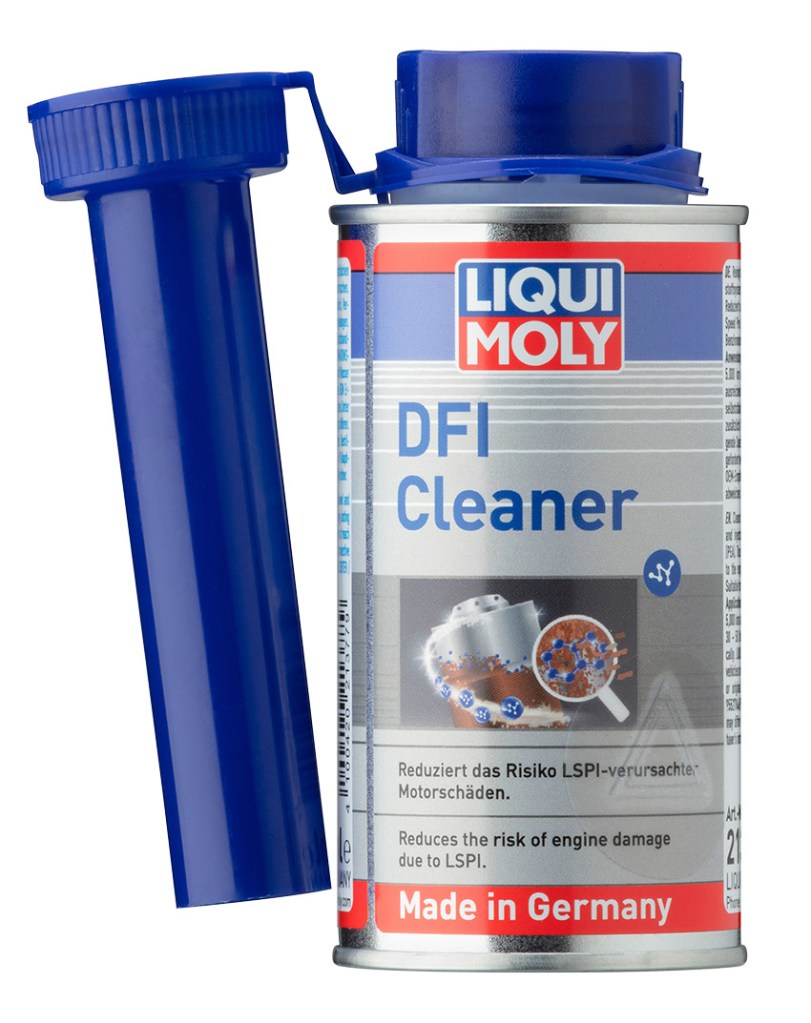
DFI cleaners
What are the problems associated with low speed pre-ignition (LSPI) and how can it be prevented?
LSPI is a phenomenon which is observed especially on modern downsized engines. Unlike the long known engine knocking, LSPI takes place not at high but at low RPM. Contaminants in the combustion chamber play an important role in this as glowing particles lead to premature ignition. Like engine knocking this may cause severe engine damage. The LIQUI MOLY DFI Cleaner addresses this issue. It is a strong cleaning additive which removes these contaminants. It is so strong that you must not use it more often than every 3,000 miles.

